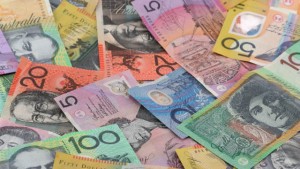Home » Commentary » Opinion » Drop the cash ban. Let’s keep legal tender legal
· Spectator
 When does the end justify the means? One answer to that question comes in legislation currently snaking its way through the federal parliament that will, if enacted, ban the use of cash to pay bills of $10,000 or more. The bill has passed the House of Representatives but not yet the Senate, and there are reports of concern with it among Coalition ranks.
When does the end justify the means? One answer to that question comes in legislation currently snaking its way through the federal parliament that will, if enacted, ban the use of cash to pay bills of $10,000 or more. The bill has passed the House of Representatives but not yet the Senate, and there are reports of concern with it among Coalition ranks.
Any modest member who is concerned is right to be. As is so often the case, this is a draconian measure that sacrifices our economic freedom on the altar of some high-minded regulatory goal. This time it’s to make the black economy, money laundering and tax evasion more difficult.
We should be concerned about such erosion of economic freedom and individual liberty more generally because these are characteristics of the most successful societies and economies. Individuals and enterprises responding to undistorted price signals and low taxation in a setting of light regulation and the rule of law will not only enjoy greater personal fulfilment but also make a greater contribution to a productive and innovative economy.
It is true that the details of the planned cash ban are not quite as lurid as some ‘fake news’ reports suggest. You will still be able to withdraw any amount from a bank account (or deposit it), and the ban will only apply to transactions with businesses – it will not apply, for example, to a cash gift from one person to another. It is also true, however, that some of these let-outs will rely on ministerial regulations rather than the legislation itself – and it’s much easier to change regulations down the track than it is to change legislation.
But wherever the ban applies, it will unquestionably encroach on economic freedom. Many people still prefer to use cash even when online bank transfers, direct debits, BPay, eftpos, PayPal and so on have made non-cash means of payment much more convenient and efficient (and sometimes unavoidable). An innocent preference for cash should not be put in the same bucket of illegality as money laundering and tax evasion.
It takes a certain absolutist way of thinking to conclude that cash’s potential to facilitate unacceptable practices justifies government in banning it regardless of the collateral damage to economic freedom. The same kind of thinking has led to plastic bag bans, cumbersome bottle deposit/refund schemes, minimum prices for alcoholic drinks and a recent suggestion that the blood alcohol limit for drivers be lowered to zero.
It is not even clear that the cash ban will contribute much to its stated objective.
At least the cap — at $10,000 — is being set high enough that it will not be an inconvenience for many bona fide transactions. However, as there is no provision to index the cap to inflation it will gradually become lower in real terms and therefore more of a constraint on people’s freedom of choice. A future government may also find it likes the cash ban approach so much that it decides to tighten the screwsby lowering the nominal dollar cap.
For these reasons, the current proposal is this may well be just the beginning of a slippery slope to lower and lower caps and ultimately a cashless economy — a ‘big brother’ world in which the anonymity and privacy of cash are lost forever.?
It would be best not to even start down that path. The authorities have enough tools to tackle money laundering and tax evasion without doing so.
Every note in your pocket carries the declaration “legal tender throughout Australia.” Let that continue to mean exactly what it says, without a caveat that says “unless too many of them are bundled together.”
Drop the cash ban. Let’s keep legal tender legal